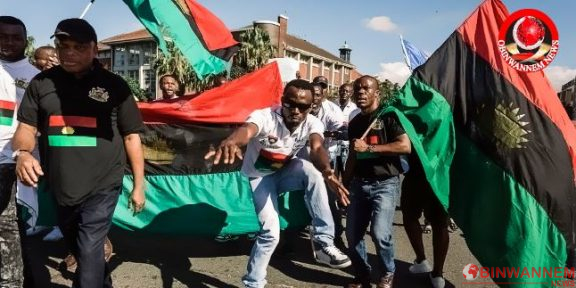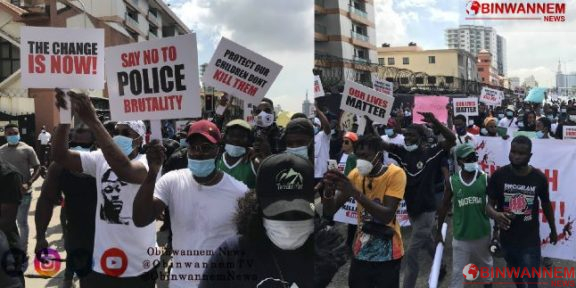The tranquillity of Amaifeke Ancient Kingdom in Orlu Local Government Area of Imo State was disrupted on Tuesday, 18th July 2023, when gunmen launched an audacious attack on the palace of the chairman of the Council of Imo Traditional Rulers, His Royal Highness Eze Emmanuel Okeke. The incident resulted in the loss of one life and left several others injured. The timely intervention of the police operatives and local vigilantes, though costly, prevented a more catastrophic outcome. This attack, however, highlights the urgency for lasting peace in the South East region of Nigeria.
The Foiled Attack
The assailants, described as hoodlums, struck with a clear intent to breach the security of the palace. They came in significant numbers, brandishing firearms and firing indiscriminately, attempting to force their way into the sacred premises. Thanks to the coordinated efforts of the police operatives and the local vigilantes of Amaifeke Ancient Kingdom, a protracted gun duel ensued, forcing the attackers to retreat with gunshot wounds.
Unfortunately, the confrontation resulted in the tragic loss of a local security operative, and two vigilantes were shot, with one succumbing to his injuries. The blood-stained trails left by the attackers as they fled suggested that some of them had been critically injured. While the situation was contained, it served as a stark reminder of the ongoing security challenges in the South East region.
The Need for Peace in South East Nigeria
The attack on the palace of Eze Emmanuel Okeke is yet another incident that underscores the urgent requirement for peace in the South East. The region has been grappling with security issues, ranging from militancy and kidnappings to attacks on security forces and government facilities. These acts of violence have disrupted the social fabric of communities, disrupted economic activities, and resulted in the loss of precious lives.
Preservation of Cultural Heritage: The palace of a traditional ruler holds immense cultural and historical significance for the community. Such attacks not only endanger the lives of the royal family and palace residents but also threaten the preservation of the region’s rich cultural heritage. The South East boasts a rich tapestry of traditions and customs, and it is crucial to protect these cultural assets from the ravages of violence.
Economic Development: Peace is a fundamental catalyst for economic growth. Insecure environments deter investors, both domestic and foreign, from committing resources to the region. This lack of investment negatively impacts job creation, infrastructure development, and overall economic prosperity. To achieve sustainable development, peace and security must be prioritized.
Unity and Reconciliation: The South East has a diverse population with various ethnic groups and histories. A peaceful environment fosters a sense of unity and encourages dialogue among different communities, leading to reconciliation and harmonious coexistence. Peacebuilding initiatives can bridge divides and promote mutual understanding, ultimately strengthening the fabric of the region.
Security of Lives and Property: The primary duty of any government is to ensure the safety and security of its citizens. The citizens of the South East deserve to live without fear of violence or harm. By actively pursuing peace, the authorities can safeguard the lives and property of the people, fostering an environment conducive to personal and collective growth.
The Role of Government and Stakeholders
To achieve lasting peace in the South East, a multi-faceted approach is required, involving various stakeholders, including the government, traditional institutions, community leaders, civil society organizations, and citizens.
Strengthening Security Agencies: The government must equip security agencies with the necessary resources and training to effectively combat crime and protect communities. Intelligence gathering and collaboration between various security outfits are essential in dismantling criminal networks.
Engaging in Dialogue: Meaningful dialogue between the government, community leaders, and relevant stakeholders can address the root causes of the conflict. It is vital to identify and address grievances, promote understanding, and explore avenues for peaceful resolution.
Promoting Youth Empowerment: Engaging and empowering the youth is crucial in creating a more peaceful society. Initiatives that provide education, skills training, and employment opportunities can redirect young minds away from violence and towards positive contributions to society.
Community-Based Programs: Local communities must play an active role in maintaining peace. Establishing community-based programs for conflict resolution, mediation, and peacebuilding can enhance social cohesion and prevent violence.
Conclusion
The attack on the palace of the Traditional Ruler of Amaifeke is a stark reminder of the imperative for peace in the South East region of Nigeria. Only through concerted efforts by the government, traditional institutions, and communities can lasting peace be achieved. Preserving cultural heritage, fostering economic development, and ensuring the security of lives and property should be at the heart of these efforts. The South East, with its rich history and vibrant culture, has the potential to thrive and prosper in an atmosphere of peace and unity. It is time for all stakeholders to come together, embrace dialogue, and work towards a harmonious and prosperous future for the region.

















